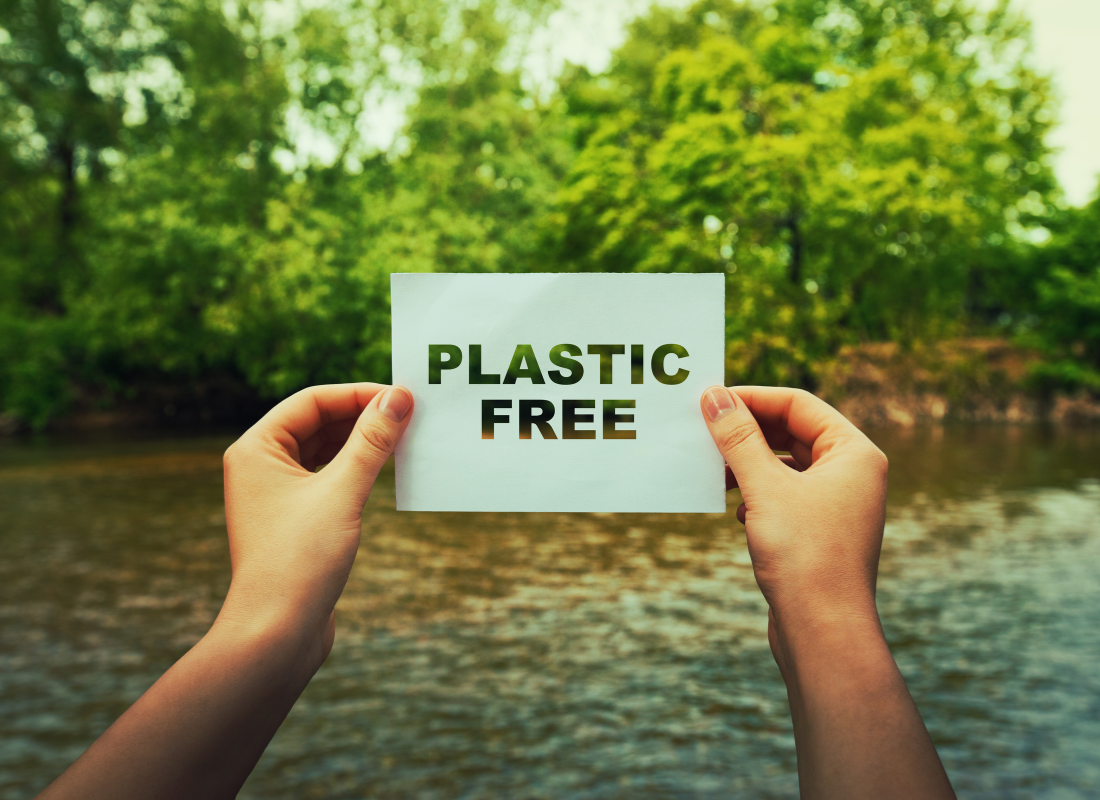
With plastic pollution threatening marine life, ecosystems, and human health, many countries and cities are implementing bans on single-use plastics. Items like plastic bags, straws, and food containers are now restricted or prohibited in areas across the globe. This shift leaves the food industry with a challenge: to find sustainable packaging solutions that meet both regulatory standards and consumer expectations.
 This article explores the top alternatives to single-use plastic packaging in the food industry, highlighting innovative companies leading the way and offering practical solutions for businesses looking to adopt eco-friendly packaging. With consumer demand for sustainable options on the rise, rethinking food packaging is not just good for the planet—it’s smart business.
This article explores the top alternatives to single-use plastic packaging in the food industry, highlighting innovative companies leading the way and offering practical solutions for businesses looking to adopt eco-friendly packaging. With consumer demand for sustainable options on the rise, rethinking food packaging is not just good for the planet—it’s smart business.
The Environmental Impact of Single-Use Plastics
Single-use plastics have long been the default choice for food packaging due to their durability, low cost, and convenience. However, their environmental impact is significant. Plastics can take hundreds of years to degrade, polluting land and oceans, and harming wildlife. According to the UN, over 300 million tons of plastic waste are produced globally each year, with food packaging as a major contributor.
 In response, governments and environmental organizations are increasingly pushing for bans on single-use plastics, creating an urgent need for sustainable alternatives in the food industry. This movement has opened the door for innovative packaging solutions designed to minimize waste and environmental harm.
In response, governments and environmental organizations are increasingly pushing for bans on single-use plastics, creating an urgent need for sustainable alternatives in the food industry. This movement has opened the door for innovative packaging solutions designed to minimize waste and environmental harm.
Compostable Containers: A Biodegradable Solution
Compostable containers are becoming a popular alternative to single-use plastics. Made from materials like cornstarch, sugarcane bagasse, and bamboo, these containers can break down in industrial composting facilities, returning nutrients to the soil rather than polluting the environment.

Examples of Companies Leading in Compostable Packaging:
BioPak: An Australian company that specializes in compostable food packaging, BioPak offers a range of products including takeaway containers, cups, and utensils made from renewable, plant-based materials. Their products are designed to break down in commercial composting facilities within 90 days.
Eco-Products: Based in the U.S., Eco-Products offers a wide variety of compostable packaging made from renewable resources like PLA (a corn-based bioplastic) and sugarcane. Their products meet international compostability standards and are used by restaurants and cafes across North America.
For businesses, compostable packaging provides a straightforward, sustainable alternative to traditional plastics. However, it’s essential to educate consumers on the proper disposal of these materials, as they typically require industrial composting facilities to break down fully.
Edible Packaging: A Zero-Waste Option
Edible packaging is a creative, zero-waste solution that’s gaining traction in the food industry. Made from ingredients like seaweed, rice, and potato starch, edible packaging can be consumed along with the food it holds, leaving no waste behind. This innovative packaging type is particularly popular for items like single-serve condiments, sauces, and drink capsules.
Examples of Companies Innovating in Edible Packaging:
Notpla: A UK-based startup, Notpla has developed an edible film made from seaweed and plants, which can be used for liquid packaging. Notpla’s seaweed-based packaging gained popularity during the London Marathon, where it was used to serve runners water in biodegradable, edible pods.
 Loliware: Initially recognized for its edible cups made from plant-based gelatin, has shifted its focus since appearing on Shark Tank. After launching edible straws in 2018, the company discontinued these products to concentrate on sustainable, non-edible packaging solutions.
Loliware: Initially recognized for its edible cups made from plant-based gelatin, has shifted its focus since appearing on Shark Tank. After launching edible straws in 2018, the company discontinued these products to concentrate on sustainable, non-edible packaging solutions.
 In April 2022, Loliware introduced the “Blue Carbon Straw,” a compostable straw made from seaweed pellets, providing an eco-friendly alternative to plastic. This transition reflects Loliware’s ongoing commitment to functional and environmentally conscious products, moving away from edible packaging.
In April 2022, Loliware introduced the “Blue Carbon Straw,” a compostable straw made from seaweed pellets, providing an eco-friendly alternative to plastic. This transition reflects Loliware’s ongoing commitment to functional and environmentally conscious products, moving away from edible packaging.
 For food service companies, edible packaging offers a unique, eco-friendly option that aligns with zero-waste goals. While it may not yet be suitable for every type of food item, edible packaging is a promising solution for single-serve items and can help reduce reliance on disposable plastics.
For food service companies, edible packaging offers a unique, eco-friendly option that aligns with zero-waste goals. While it may not yet be suitable for every type of food item, edible packaging is a promising solution for single-serve items and can help reduce reliance on disposable plastics.
Biodegradable and Recyclable Paper-Based Packaging
Paper-based packaging, especially if sourced sustainably and free of plastic linings, provides a biodegradable and recyclable alternative to plastic. When made from materials like recycled paper or sustainably harvested wood pulp, paper packaging can decompose naturally or be recycled, making it a versatile and widely available choice.
Examples of Paper-Based Packaging Solutions:
Huhtamaki: A global leader in sustainable packaging, Huhtamaki offers paper-based food packaging solutions, including cups, trays, and containers that are both recyclable and biodegradable. The company also offers products with compostable linings for enhanced environmental impact.
 WestRock: Known for its innovative packaging designs, WestRock creates recyclable paperboard solutions, focusing on durability without the need for plastic coatings. Their designs are customizable for various food industry needs, from fast-food packaging to grocery items.
WestRock: Known for its innovative packaging designs, WestRock creates recyclable paperboard solutions, focusing on durability without the need for plastic coatings. Their designs are customizable for various food industry needs, from fast-food packaging to grocery items.
 Paper-based packaging is highly versatile and has a lower carbon footprint than plastic. By choosing biodegradable or recyclable paper packaging, companies can offer an environmentally friendly option that consumers already understand and appreciate.
Paper-based packaging is highly versatile and has a lower carbon footprint than plastic. By choosing biodegradable or recyclable paper packaging, companies can offer an environmentally friendly option that consumers already understand and appreciate.
Reusable Containers: The Shift to a Circular Economy
Reusable containers support the concept of a circular economy by eliminating waste from the start. Some restaurants and cafes are now using reusable container programs, where customers can borrow and return containers for a deposit or membership fee, allowing them to enjoy takeout without single-use waste.
Examples of Reusable Container Programs:
Loop: An initiative by TerraCycle, Loop offers reusable packaging for a variety of food products. Consumers pay a deposit on durable containers, which are cleaned and reused by the company. Loop partners with major brands and is expanding its reach to grocery stores and online retailers.
 RECUP: Based in Germany, RECUP provides reusable cup solutions for cafes and restaurants, where customers can borrow a cup and return it to any participating location. This concept has helped reduce single-use cup waste significantly across Germany and is expanding internationally.
RECUP: Based in Germany, RECUP provides reusable cup solutions for cafes and restaurants, where customers can borrow a cup and return it to any participating location. This concept has helped reduce single-use cup waste significantly across Germany and is expanding internationally.
 Reusable containers require a shift in consumer habits and logistics but offer a long-term, waste-free alternative to disposable packaging. For companies, adopting reusable programs demonstrates a commitment to sustainable practices and reduces their environmental footprint.
Reusable containers require a shift in consumer habits and logistics but offer a long-term, waste-free alternative to disposable packaging. For companies, adopting reusable programs demonstrates a commitment to sustainable practices and reduces their environmental footprint.
The Business Case for Sustainable Packaging
 As more cities and countries enact plastic bans, food businesses that embrace sustainable packaging options are positioning themselves as responsible, forward-thinking brands. Beyond regulatory compliance, sustainable packaging offers several benefits:
As more cities and countries enact plastic bans, food businesses that embrace sustainable packaging options are positioning themselves as responsible, forward-thinking brands. Beyond regulatory compliance, sustainable packaging offers several benefits:
- Improved Brand Image: Consumers are increasingly prioritizing eco-conscious brands. Offering sustainable packaging appeals to environmentally minded customers, enhancing brand reputation.
- Cost Savings: While initial investments in sustainable packaging may be higher, reusable programs and compostable materials can save money long-term by reducing waste management costs.
- Future-Proofing: With more regulations expected, adopting sustainable packaging now prepares companies for future changes and gives them a competitive edge.
Conclusion: Moving Toward a Plastic-Free Future
As single-use plastic bans continue to spread, the food industry has a crucial role to play in leading the way toward sustainable packaging. From compostable containers and edible packaging to paper-based and reusable solutions, there are numerous alternatives to traditional plastic packaging that can help reduce waste and minimize environmental impact.
 Companies like BioPak, Notpla, Huhtamaki, and Loop are pioneering these sustainable options, setting a standard for eco-friendly packaging in the food industry. By investing in these alternatives, food businesses can not only comply with regulations but also meet consumer demand for sustainable choices, strengthen their brand, and contribute to a healthier planet.
Companies like BioPak, Notpla, Huhtamaki, and Loop are pioneering these sustainable options, setting a standard for eco-friendly packaging in the food industry. By investing in these alternatives, food businesses can not only comply with regulations but also meet consumer demand for sustainable choices, strengthen their brand, and contribute to a healthier planet.
For any food business, the time to rethink packaging is now. Sustainable packaging solutions are no longer just an option—they’re an essential step in building a resilient, responsible future.




